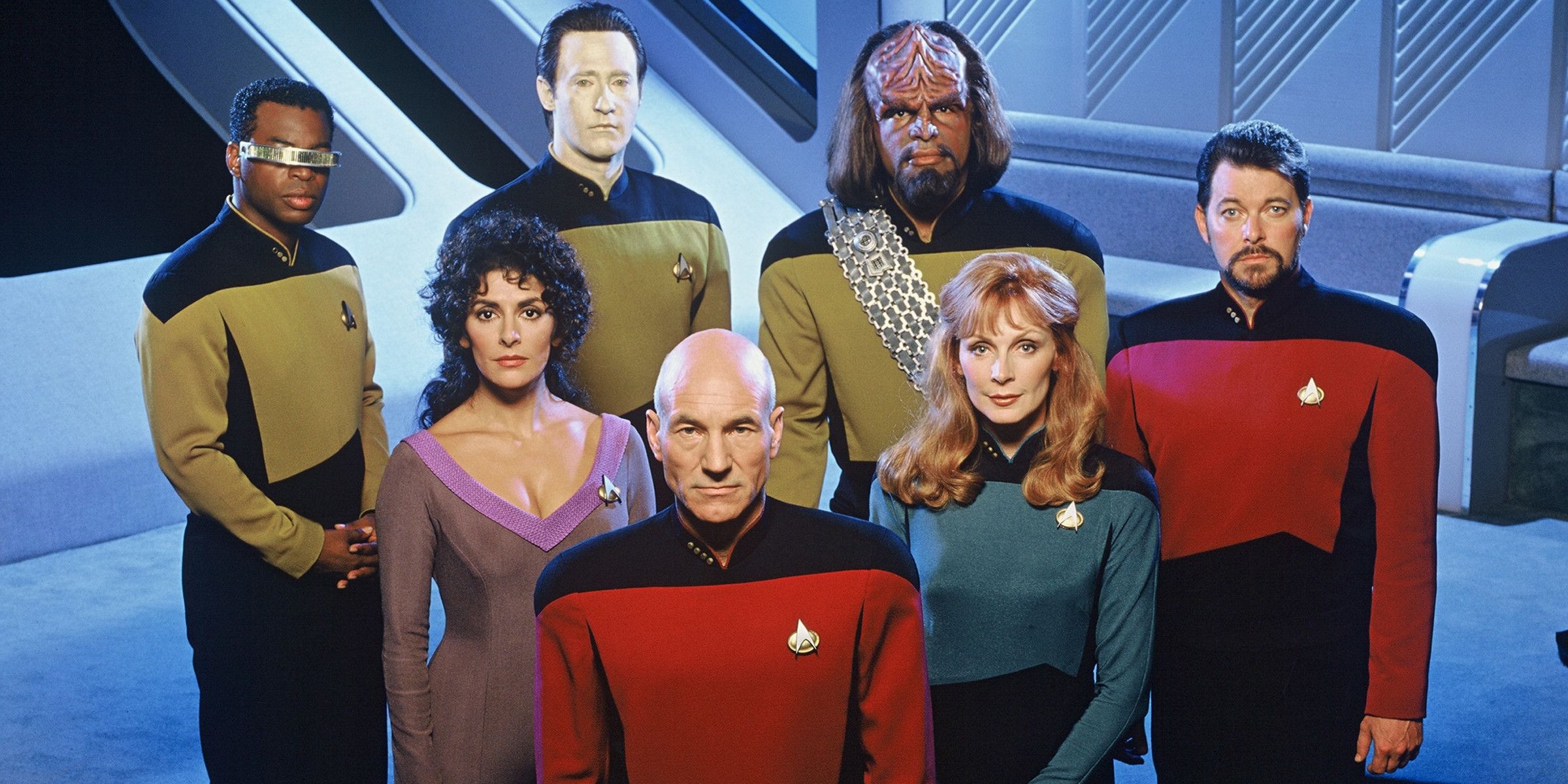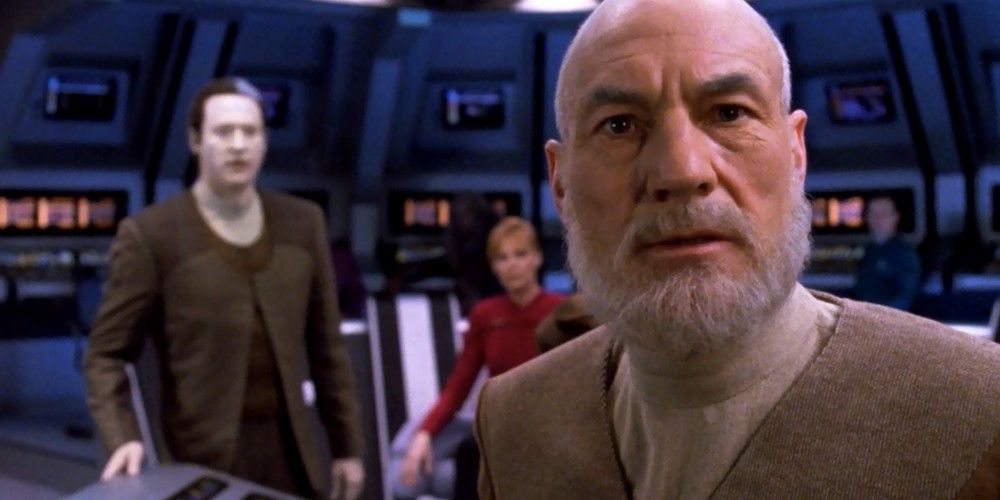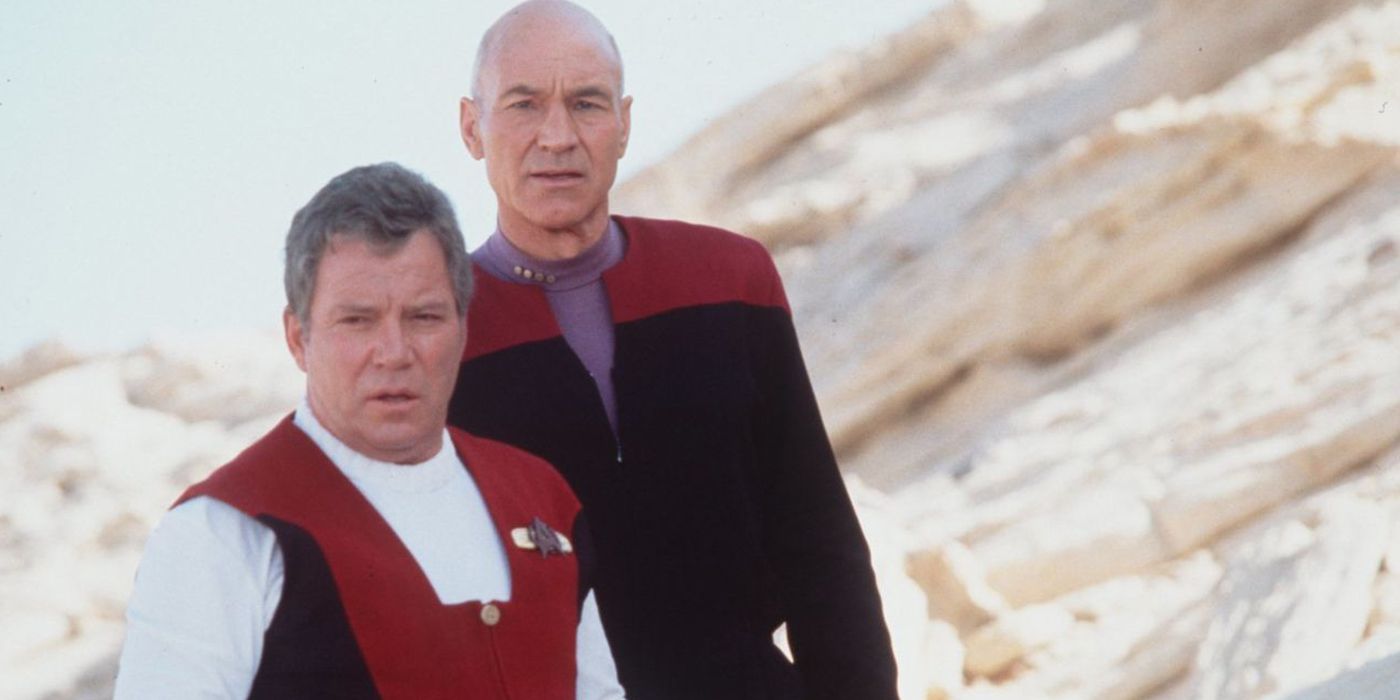Star Trek: The Next Generation is regarded as one of the best television series in the Star Trek franchise, running for seven seasons, more than twice the run of the original series decades before. And while the cast and crew were initially contracted for a planned eighth season, with the series remaining at the height of its popularity with audiences, Paramount decided to pull the plug on the adventures of Captain Jean-Luc Picard and his crew one full season early as production began ramping up on their first feature film.
With that said, let's look at why Star Trek: The Next Generation came to an abrupt end at the height of its prominence.
How Star Trek: The Next Generation Ended
The crew of the U.S.S. Enterprise-D had endured much across its ongoing mission to go where no one has gone before, exploring the cosmos in service of Starfleet. From casualties to frightening confrontations with the Borg Collective that left Picard shaken to his core, The Next Generation's television adventures would ultimately end just as they began: In a confrontation with the omnipotent being Q deciding if humanity was worthy enough to continue its existence.
First airing on May 23, 1994, the two-hour series finale "All Good Things..." had Picard realize that Q had quietly been judging him and the Enterprise crew throughout the entire series and was ready to reach a verdict on humanity's final fate. With Picard's consciousness bouncing between timelines set in his past, relative present and possible future, the captain found himself confronting a spatial anomaly across all three timelines. And while Picard's adventures as captain of the Enterprise would continue beyond the events of the finale, the premise established by the series pilot in 1987 would be beautifully bookended in one last interaction with Q.
Why Paramount Canceled Star Trek: The Next Generation
The cast was surprised to learn that Paramount was ending the series early, despite the tentative Season 8 plans, with many of the actors intending to continue their roles on television before the cancelation announcement. While the series remained popular and profitable, Paramount theorized that the franchise could be more profitable as a feature film series. Four days after wrapping production on the series finale, the main cast began principal photography on Star Trek Generations, which premiered six months after The Next Generation's finale aired. The Next Generation cast would assemble for four feature films total, eventually ending with 2002's Star Trek: Nemesis.
Similarly, Paramount was already in the midst of filling the void left by The Next Generation by expanding its next wave of Star Trek programming. In 1993, Star Trek: Deep Space Nine premiered and posted solid viewership, though never quite at the same levels as The Next Generation. And as The Next Generation was deep in production for its seventh and final season, Paramount began development on the new television series Star Trek: Voyager to help launch its new network UPN. Voyager premiered in January 1995, less than a year after The Next Generation wrapped its seven-season run, continuing Paramount's vision of having two television series running concurrently while new feature films starring The Next Generation cast were being produced.
In the end, The Next Generation received an early cancelation not because of diminished viewership but because of Paramount's plans to bring the Star Trek franchise back to the big screen with their fan-favorite crew and introduce new series to the small screen. While the opportunity for one more season of The Next Generation remains a bittersweetly unresolved what-if, the series certainly ended on a high note with its widely acclaimed finale, giving the Enterprise-D a fitting send-off as it prepared them for the big screen.



